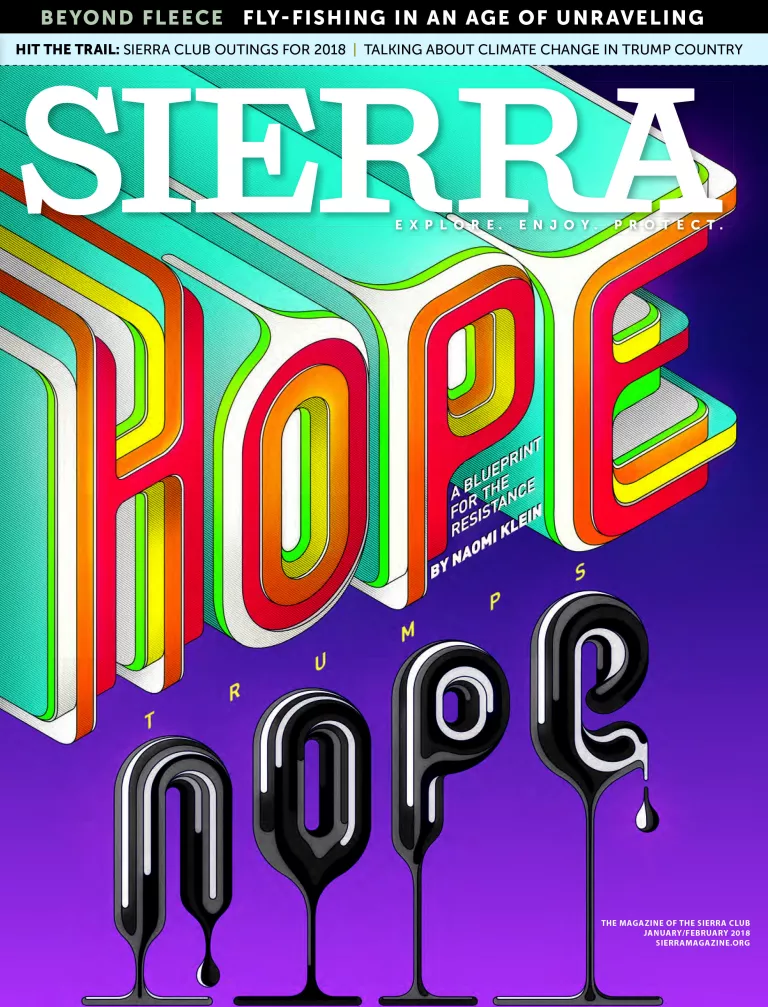The Talking Cure
The Rural Climate Dialogues are democracy at its best

More than a year has passed since the election of President Donald Trump, and I still haven't gotten used to the new normal of a Twitter-obsessed reality-show star as commander in chief. Many days, I feel like a stranger in my own country. I know I'm not alone in this feeling. The United States seems, increasingly, like two separate nations living in a shared territory.
It's not news that Americans are more politically polarized now than at any time in modern history. According to an NBC/Wall Street Journal survey, Trump is the most divisive president in the history of polling. This marks the intensification of a long-standing trend. Every presidential administration since Bill Clinton's has been more polarizing than its predecessor—a phenomenon that has as much to do with the political parties and the media (and the abolition of the Fairness Doctrine) as it does with any specific officeholder. The Pew Research Center reports that "partisan animosity has increased substantially" since the mid-1990s. Issues that once enjoyed bipartisan consensus—the need to address climate change is a perfect example—now divide voters along party lines.
The Sierra Club community isn't immune to such polarization. In response to the environmental attacks emanating from the Trump administration (see weakened protections for streams and wetlands, the scrapping of the Clean Power Plan, the intended withdrawal from the Paris Agreement, reduced protections for threatened wildlife), the organization has adopted a fighting stance. But such resistance has discomfited some Sierra Club members, who object to what they see as unfair partisanship and who would like for the organization to give the president the benefit of the doubt. At the same time, other members complain that the organization is not moving far enough and fast enough to challenge the Donald Trump–Scott Pruitt–Ryan Zinke agenda.
Such intensifying political divisions present a real challenge for an organization like the Sierra Club, which has long sought to transcend partisan labels. How can we unite people of diverse political affiliations—Republicans, Democrats, Libertarians, and Greens—around a shared ideal of environmental justice? That is, the belief that everyone, regardless of race or creed, has equal rights to clean air, clean water, and a stable climate as well as access to wild places. After all, the vast majority of life on Earth (trees, wolves, wildflowers, songbirds) doesn't give a damn about party affiliations.
In this era of seemingly intractable polarization, the work of an organization called the Jefferson Center offers one hopeful example of how to break through partisan distrust. As Madeline Ostrander reports ("Talking About Climate Change in Trump Country"), the Jefferson Center has partnered with the Institute for Agriculture and Trade Policy to stage a series of "Rural Climate Dialogues" in Minnesota's farming country. The three-day gatherings have had one notable success: getting Trump voters to acknowledge that human activities are fueling global climate change. Ostrander writes, "At a time when national politics seem to be inextricably gridlocked, it's possible that change will have to happen like this, conversation by conversation, community by community."
The climate dialogues rest on an idea as old as democracy itself: asking citizens to talk to each other. I'd like to think that's a political good we can all agree on.
 The Magazine of The Sierra Club
The Magazine of The Sierra Club



